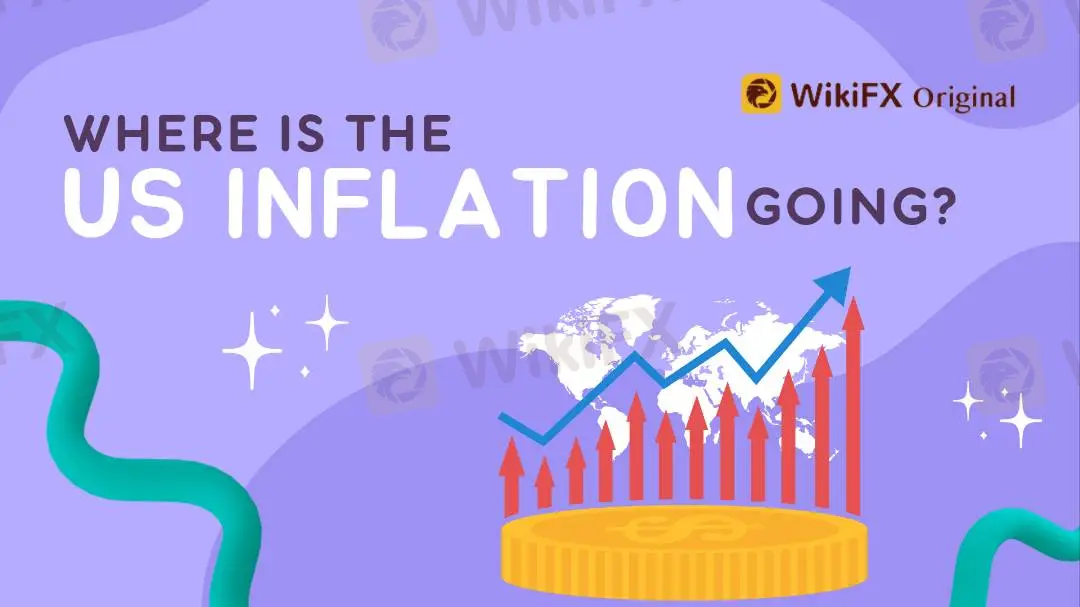简体中文
繁體中文
English
Pусский
日本語
ภาษาไทย
Tiếng Việt
Bahasa Indonesia
Español
हिन्दी
Filippiiniläinen
Français
Deutsch
Português
Türkçe
한국어
العربية
Where is the US Inflation Going?
Abstract:It is anticipated that inflation will continue to be one of the most important global themes in the American stock markets in 2023.

The sudden rise in inflation has significantly impacted all economic factors after it reached record levels, significantly decreasing purchasing power. National central banks have started to speed up their monetary tightening cycles as a direct result of this, most notably in the US.

As a gauge of what businesses receive for the goods they produce, the Producer Price Index (PPI) for final demand increased by 0.3% in November and 7.4% from the same month a year earlier.

According to the most recent data from the Consumer Price Index, annual inflation has been trending down since peaking at more than 9% in June 2022. (CPI). It reached a level in November (+7.1% after 7.7% in October), which is exactly the same as the level that would be reached in December 2021. In addition, since the period ended in December 2021, November had the lowest 12-month growth.

The Federal Reserve's preferred method of measuring inflation, the personal consumption expenditures (PCE) price index, also shows signs of slowing down.
The fact that inflation held steady in October at its pre-crisis level of 0.3% surprised economists. They had anticipated a modest increase of 0.4%. In October, the PCE index's year-over-year decline dropped 6% from the previous month's reading of 6.3%.

Last but not least, looking at pay increases in the US is intriguing, especially to gauge the likelihood of a wage-price spiral.
People frequently desire an increase in their income in order to make up for the decrease in the amount of money they have available to spend when there is a rise in the cost of living. However, since businesses might decide to raise their final prices in order to maintain their profit margins, these higher salaries have the potential to continue fuelling inflation.
Should investors anticipate a decline in US inflation going forward?
There is a good chance that inflation in the United States will become more controllable if food and energy prices remain largely unchanged. In addition, despite salary increases, inflation is continuing its downward trend, which suggests that, for the time being, the risks of a wage-price spiral are being contained.
Because the shocks driving inflation aren't coming from the labour market, because real wages appear to be declining, which is easing price pressures, and because the Fed and other central banks have adopted quite aggressive monetary policies, the IMF's analysis in its World Economic Outlook indicates that “a sustained acceleration of wages and prices is unlikely.”
One thing is certain: inflation will be one of the primary themes influencing the stock, bond, and Forex markets in the upcoming year. Make sure you're using a trustworthy broker to invest in the financial and currency markets. Utilize WikiFX's almighty database to verify the credibility of your broker.

Finally, always equip yourself with the appropriate trading knowledge before dabbing into the markets. Visit WikiFX's free education site (https://www.wikifx.com/en/education/education.html) for free courses and information that could elevate your trading performance.

Disclaimer:
The views in this article only represent the author's personal views, and do not constitute investment advice on this platform. This platform does not guarantee the accuracy, completeness and timeliness of the information in the article, and will not be liable for any loss caused by the use of or reliance on the information in the article.
Read more

Webull Launches SMSF Investment Platform with Zero Fees
Webull introduces commission-free SMSF trading, offering over 3,500 US and Australian ETFs, with no brokerage fees and enhanced portfolio tools.

April Fool's Day Scam Prevention Experience Collection
Share your “Forex Fraud Prevention Experience”, win WikiFX points and gold rewards!

How Will the Market React at a Crucial Turning Point?
Safe-haven assets like gold and U.S. Treasuries are surging, while equities face mounting pressure. As this pivotal moment approaches, how will the market react?

Gold Prices Climb Again – Have Investors Seized the Opportunity?
Gold prices have hit record highs for three consecutive days, with a remarkable 19% gain in the first quarter, marking the strongest quarterly performance since 1986. As market risk aversion rises, demand for gold has surged significantly.
WikiFX Broker
Latest News
How Crypto Trading Transforms FX and CFD Brokerage Industry
FCA Warns Against 10 Unlicensed or Clone Firms
CySEC Warns Against 14 Unlicensed Investment Websites
Top Currency Pairs to Watch for Profit This Week - March 31, 2025
Will natural disasters have an impact on the forex market?
Philippines Deports 29 Indonesians Linked to Online Scam Syndicate in Manila
Exposing the Top 5 Scam Brokers of March 2025: A Closer Look by WikiFX
Gold Prices Climb Again – Have Investors Seized the Opportunity?
Webull Launches SMSF Investment Platform with Zero Fees
Australian Regulator Warns of Money Laundering and Fraud Risks in Crypto ATMs
Currency Calculator







